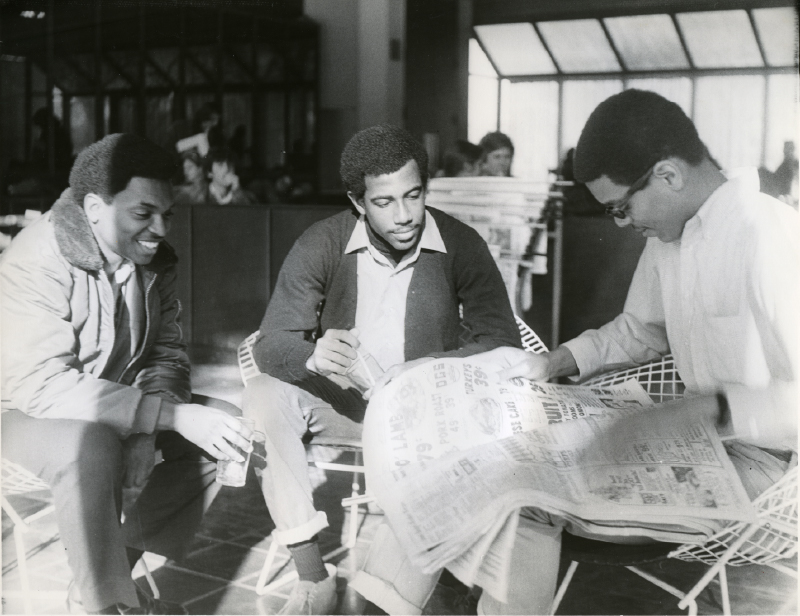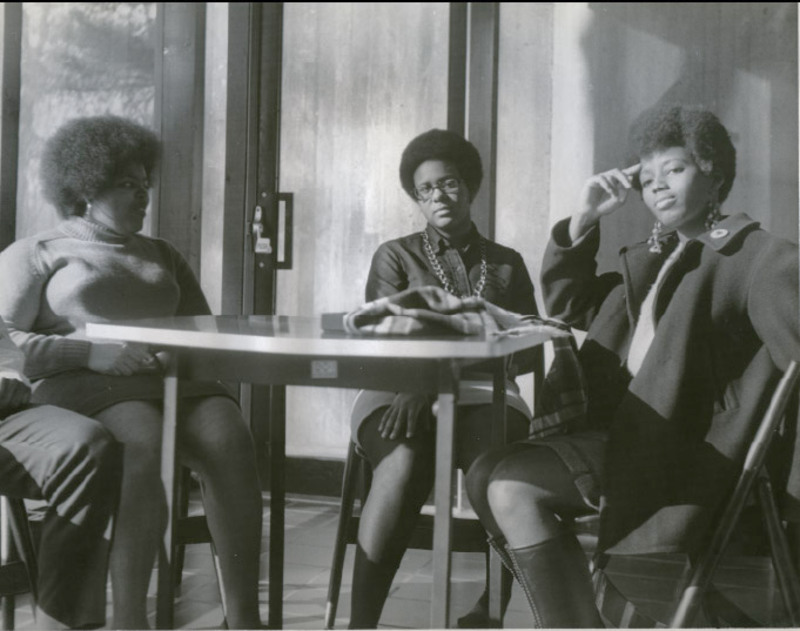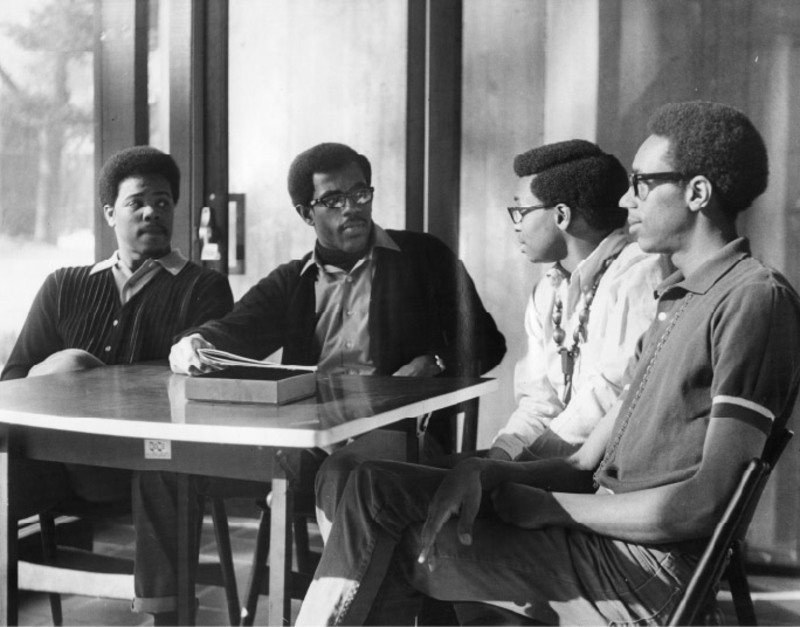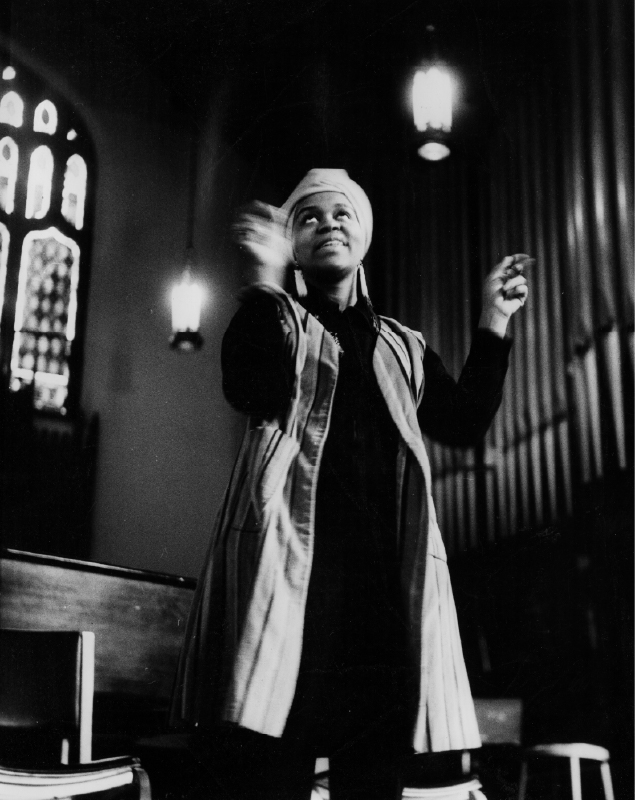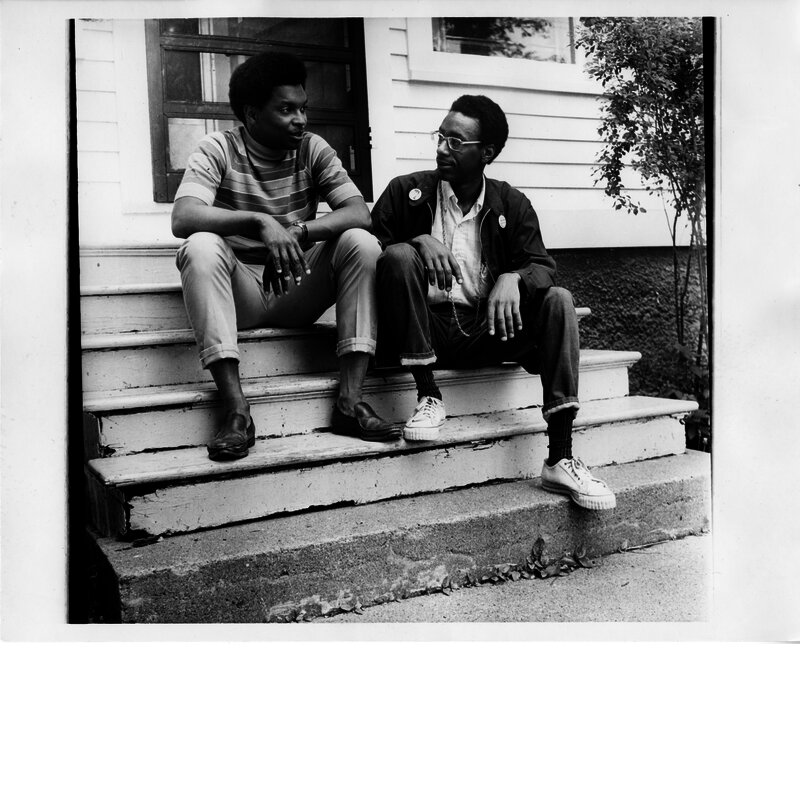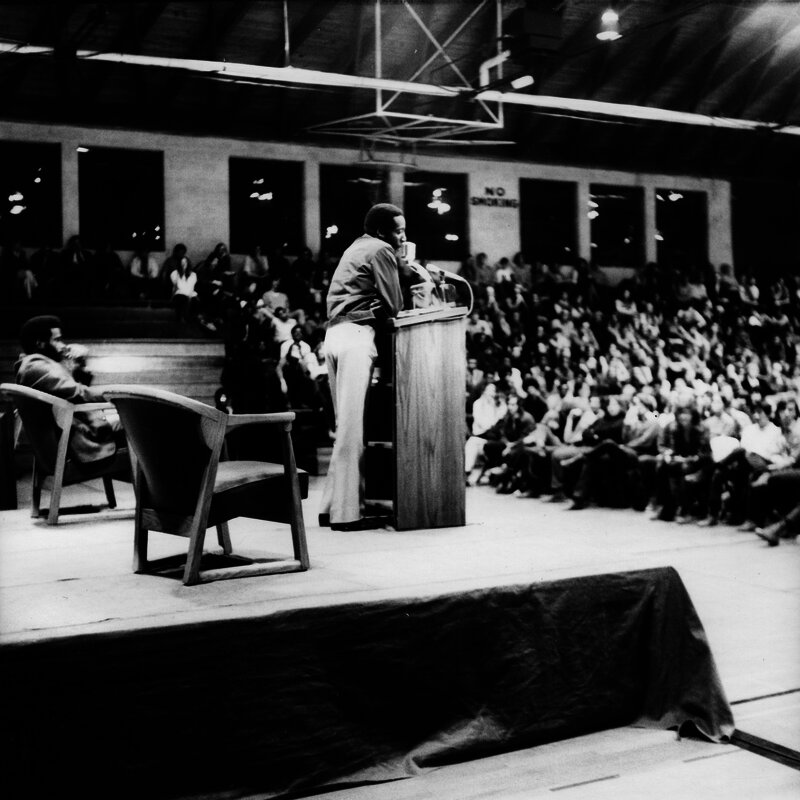CBS and the Black Experience at Grinnell College
Life at Grinnell for Black Students
Even with its progressive mission, Black students at Grinnell College faced a less than equitable situation. With the college’s location in rural Iowa, many Black students felt out of place and unsafe. While Black students studied at Grinnell College as early as 1863, enrollment of Black students was low, never totaling more than 100 Black students at a time. Edith Renfrow Smith, a native of Grinnell, was the first African American woman to graduate from Grinnell in 1937, and was the only Black student on campus during her undergraduate career. In 1968, The Scarlet & Black, the student-led newspaper, published an article compiling the racial incidents, including an attack on Lou Kelley ’68 in his dorm room by a local resident. Several Black students felt that the campus dining, living, and study resources did not meet the needs of Black students. Moreover, the curriculum at Grinnell did not represent racially diverse scholarship. While Grinnell attempted to create an African and Afro-American studies concentration in 1969, the endeavor ended in 1971.
To learn more about this, please visit the The Black Experience at Grinnell College Through Collected Oral History and Documents, 1863–1954
Concerned Black Students
After Martin Luther King Jr.’s 1967 visit to Grinnell and his assassination in 1968, the students formed the Concerned Black Students (CBS) organization to address the unique challenges faced by Black students at Grinnell College. With only 10 Black students enrolled in 1968, CBS provided Black students with much-needed community. Additionally, the CBS became a powerhouse for advocating for campus-wide changes to better meet the needs of Black students. CBS worked closely with other organizations, like the Young, Gifted and Black Gospel Choir, to promote the wellness of Black students. They also organized events such as Black Martyr’s weekend, where notable Black luminaries such as Angela Davis and Val Gray Ward spoke, and successfully advocated for campus changes, such as the creation of the Black Cultural Center (later renamed the Conney M. Kimbo Black Cultural Center).
FBI Surveillance
The activism of CBS drew the attention of the Federal Bureau of Investigation. The FBI created files on socially active students and their activities throughout the 60’s and 70’s. A Freedom of Information Act (FOIA) request of the documents demonstrates the level of scrutiny the group was under. Most of the documents are heavily redacted.

